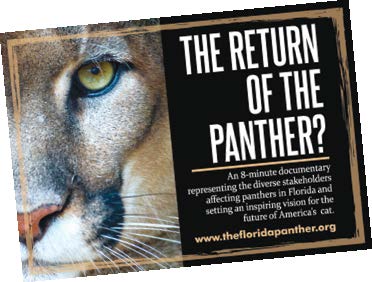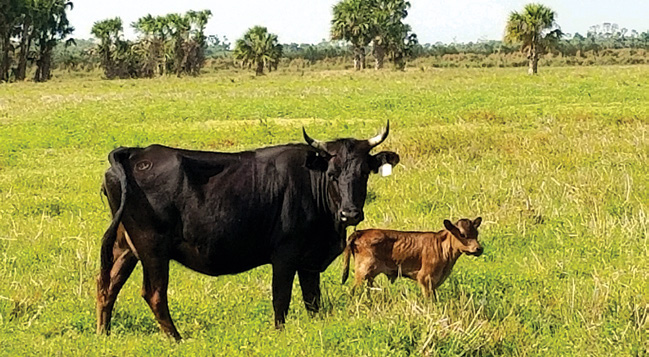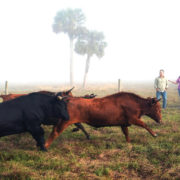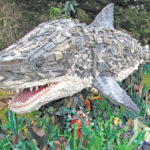Testing an Innovative Solution to Protect Panthers and Calves – The Return of the Panther?
 Following decades of recovery efforts, Florida panther numbers are steadily increasing.
Following decades of recovery efforts, Florida panther numbers are steadily increasing.
Along with federal lands like Big Cypress National Preserve, private lands also provide homes for panthers including ranchlands.Unfortunately, panthers eat calves.
Compensation programs do not fully cover the loss and require ranchers to prove a panther killed their calf. This can be difficult since panthers hide their kills.
Preventing calves from being taken is far better.
Naples Zoo is involved in a collaboration to explore how that might be done. In early 2017,David Shindle, Florida Panther Coordinator for the US Fish and Wildlife Service, reviewed research conducted by the conservation group Panthera about a cattle breed that defend their calves from jaguars in Colombia. Having about 10% of the herd comprised of this breed provides protection for the whole herd.
Shindle reviewed the idea of a pilot study with Naples Zoo’s Director of Conservation Tim Tetzlaff for the benefit of ranchers in Florida. Tetzlaff coordinated a discussion with Panthera’s Chief Conservation Officer, Dr. Luke Hunter, who then brought in the Colombian study’s lead researcher and other key scientists in the field.
The team identified a closely related cattle breed to the Colombian variety – a descendant of Spanish fighting bulls.
With expertise and connections made, JB Ranch was identified as the perfect test site as it has suffered consistent calf losses to panthers. Operated by Russell and Aliese “Liesa” Priddy, the ranch is just north of the Florida Panther National Wildlife Refuge.
 Naples Zoo purchased the cattle from an Arizona breeder and JB Ranch coordinated and paid for transporting eleven bred cows and one bull to their Immokalee ranch.
Naples Zoo purchased the cattle from an Arizona breeder and JB Ranch coordinated and paid for transporting eleven bred cows and one bull to their Immokalee ranch.
Following delays from hurricanes in Texas and Florida, the cattle arrived in December 2017. As of this writing, half a dozen calves have been born. The true test will come over time to see if these cows defend their calves against coyotes, bears, vultures – and especially panthers.
If this pilot program shows promise, these cattle could be incorporated to protect more herds throughout the state. If sufficient numbers of ranches become protected in this way, panthers may someday teach their offspring to avoid cattle altogether.
Keeping ranchlands working and profitable instead of being converted to developments puts food on our table and provides jobs for thousands of Floridians while also maintaining natural systems that keep our beaches, waters, and lands healthy. It also means a future for panthers, other native wildlife, and for Florida’s rich ranching heritage.
See the 8-minute documentary created through a partnership between Naples Zoo and Big Cypress National Preserve and understand more at www.thefloridapanther.org.




Leave a Reply
Want to join the discussion?Feel free to contribute!